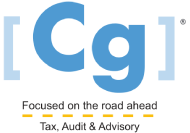
Not every employer is ready or capable of launching and administrating a 401(k) or other qualified retirement plan. If your organization is in this camp, its employees might appreciate a payroll deduction IRA.
How it works
With a payroll deduction IRA, employees’ contributions are deducted directly from their paychecks. The automatic deduction can make it easier for employees (and self-employed persons) to save for retirement consistently. As their employer, you act as a conduit between employees and the financial institution where the IRAs are established. After withholding the payroll deduction amounts your employees authorize, you transmit them to the financial institution. As long as your organization keeps its involvement to a minimum, a payroll deduction IRA typically isn’t considered an employer-provided retirement plan. This means it isn’t subject to the federal reporting requirements and other rules with which most other retirement plans must comply.
Employee responsibilities
Under a payroll deduction IRA program, employees must: Establish a traditional or Roth IRA with a financial institution, Work with the financial institution to decide how to invest the funds, and Allow their employers to make payroll deductions and send the funds to the accounts. Employees decide how much they’ll contribute and are always 100% vested in the amounts they’ve contributed to their accounts (contributions aren’t reflected on an employee’s Form W-2.). At the same time, they need to adhere to the applicable IRA contribution limits, and they can’t borrow from their IRA accounts or use them as collateral. Withdrawals made before an employee turns 59½ may be subject to taxes and penalties.
Employer’s role
As the employer, you transmit your employees’ deductions to their chosen financial institutions. In addition, you may provide general information on the payroll deduction IRA program and on saving for retirement. You can limit the number of IRA providers to which you’ll forward contributions, but you can’t negotiate with any provider to obtain special terms for your employees or influence the investments the provider permits. You may also pass along information from providers so long as it doesn’t suggest an endorsement. You’ll need to clarify that your role is limited to collecting employee contributions and timely forwarding them to providers. You should let employees know you’re not promising a specific return on investment. Before employees participate in the program, they must understand that contributions are their responsibility. Also inform them of any associated costs, such as account maintenance fees, or any limits on transferring contributions to another IRA provider.
A valuable tool
A payroll deduction IRA enables some employers to provide their employees with a valuable tool that can make it easier to save for retirement, with little cost to the business. For further information and answers to any questions you may have, contact us. © 2019


